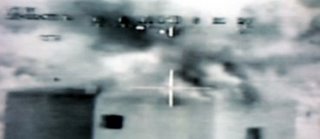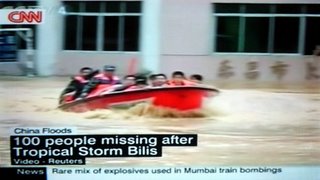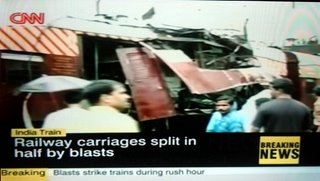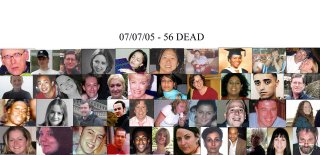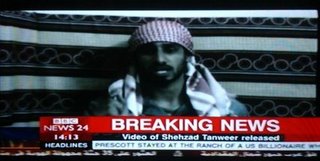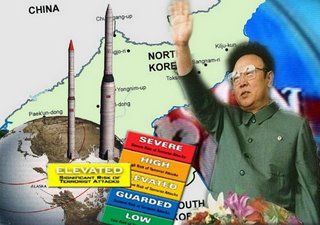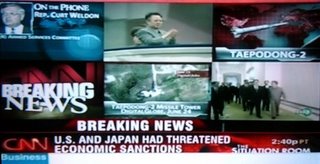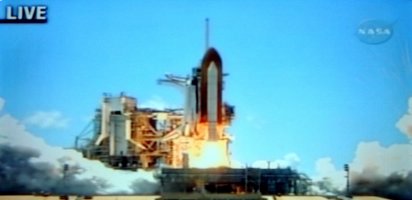
Khaifa - UN post called Israel 10 times before being hit
As the crisis in the Middle East worsens the day to day experience for civilians caught in the bombing becomes ever more difficult. One Lebanese girl, who only recently returned to Beirut after living in the UK, spoke exclusively to TVNewswatch. In an e-mail she says, “The situation here is very dangerous... I am in Beirut at the moment but my parents are in the South and that’s were the war mostly going on.” Her family has already been directly affected by the bombings. “My sisters’ houses are completely destroyed,“ she writes, “so now they are staying with us.” But her concerns are for those who aren’t so lucky. “Even worse, many innocent people are dying.” The daily air strikes on the capital, described by Israel as surgical and specific, are creating fear amongst those that are forced to remain. “Nothing is targeting my house in particular, but we can hear the bombs very close. I am very scared at the moment. I can't eat or sleep properly lately.” As many civilians caught in the war zone she hopes for a return to peace. “I hope this war will end soon,” she says. But her hopes for the future are uncertain. After the violence stops she adds that she wants to find a way of leaving Lebanon.
There has been a failure of brokering a peace deal in the Rome Summit which took place today [CNN]. Condoleeza Rice indicated that no move forward could be made until Hezbollah halted its missile attacks. Dr Rice said, “We have to have a ceasefire that is sustainable”. The Lebanese PM insisted that Israel should call an immediate ceasefire. But besides the talk there is little sign of any resolve. Kofi Anaan, still reeling from yesterday’s attack on a UN post which killed 4 observers, reiterated his consternation [BBC]. He corrected a reporter by saying that his statement said the attack was “apparently deliberately targeted”. Last night the Secretary General released a statement saying, "I am shocked and deeply distressed by the apparently deliberate targeting by Israeli Defence Forces of a UN observer post in southern Lebanon" . Several phone calls were made from the UN post to the Israeli authorities calling on the military to ‘be careful’ as missile strikes were hitting closer to the base. But after a day of bombardments, an Israeli missile made its mark. The Chinese Foreign Minister, Li Zhaoxing said he ‘strongly condemned’ the bombing [Xinhua News]. He said he felt sorrow for the victims and their families. "The Chinese side demands that all sides in the confrontation, especially Israel, take all measures to ensure the safety of UN peacekeepers." The Chinese victim, Du Zhaoyu, was among the four UN peacekeepers killed in the Israeli air strike. The other three dead UN observers were from Finland, Austria and Canada, the UN Interim Force in Lebanon (UNIFIL) confirmed. Yesterdays fatal incident is not isolated however. Four members of the Ghanaian battalion with UNFIIL were lightly injured Monday evening, when a tank round from the Israeli side impacted inside their position south of Rmaich. They were evacuated to the UNIFIL hospital in Naqoura and their condition is stable. There were six other incidents of firing close to UN positions from the Israeli side during the past 24 hours. Attacks against the UN were not confined to Israeli forces either. On Tuesday morning, Hezbollah opened small arms fire at a UNIFIL convoy consisting of two armored personnel carriers (APC) on the road between Kunin and Bint Jubayl. There was some damage to the APCs, but no casualties. The convoy was obliged to return to Kunin. And the fighting continues today. At least 119 Hezbollah rockets fell on Israel today, an increase on recent days. Meanwhile as Israel continues its land invasion they have suffered ‘heavy losses’ according to reports. Al Jazeera reported at least 13 dead on the Israeli side but no confirmation has yet been received from official sources.

